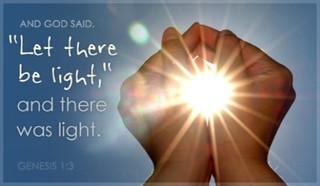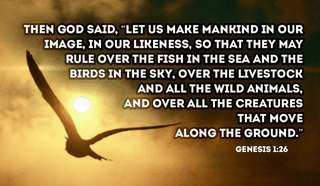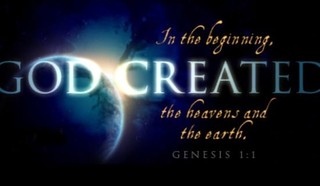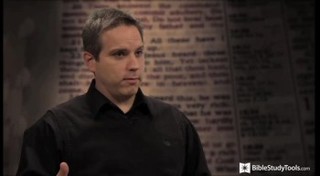
- Recent Translations
- All Translations
Genèse 1:20
Share
Settings
Genèse 1:20 Meaning and Commentary
And God said, let the waters bring forth abundantly,
&c.] The waters gathered together in one place, the waters of the ocean, and those in rivers, pools and lakes, and which, before their collection into those places, had been sat on, moved, and impregnated by the Spirit of God; so that they could, as they did, by the divine order accompanied with his power, bring forth abundance of creatures, next mentioned: the moving creature that hath life:
an animal life, of which sort of creatures as yet there had been none made; vegetables, or such as have a vegetative life, were made on the third day; but those that have a sensitive and animal life not till this day, the fifth; and the less perfect, or lower sort of these, were first produced, even such as move or "creep" F14, as the word used signifies; which is applied to fishes as well as creeping things, because in swimming their bellies touch the water, and are close to it, as reptiles on the earth: and of these creeping things in the seas there are innumerable, as the Psalmist says, ( Psalms 104:25 ) . Pliny F15 reckons up an hundred and seventy six kinds of fishes, which he puts in an alphabetical order: and fowl [that] may fly above the earth in the open firmament
of heaven;
which according to our version were to be produced out of the waters also; not out of mere water, but out of earth and water mixed together, or out of the earth or clay F16 that lay at the bottom of the waters: and it may be observed of some fowls, that they live on the waters, and others partly on land and partly on water; and as the elements of fowl and fish, the air and water, bear a resemblance to each other, so do these creatures, some fowls both fly and swim; and what wings are to the one, fins are to the other; and both steer their course by their tails, and are both oviparous: though it should seem, according to ( Genesis 2:19 ) , that the fowls were produced from the earth, and the words may be rendered here, "let the fowl fly above the earth" as they are in the Samaritan and Syriac versions, and in others F17.
F14 (Urv) "reptile", V. L. Pagninus, Montanus; "reptilia", Junius & Tremellius, Piscator.
F15 Nat. Hist. l. 32. c. 11.
F16 Vid. T. Bab. Cholin. fol. 27. 2.
F17 (Ppwey Pwew) "et volatile volet", Pagninus, Montanus, Vatablus, Amama, "et volatile volitet", Tigurine version; "et volucres volent", Junius & Tremellius, Piscator; "et aves volent", Drusius; "et volucris volet", Cartwrightus; "et avis volitet", Schmidt.



